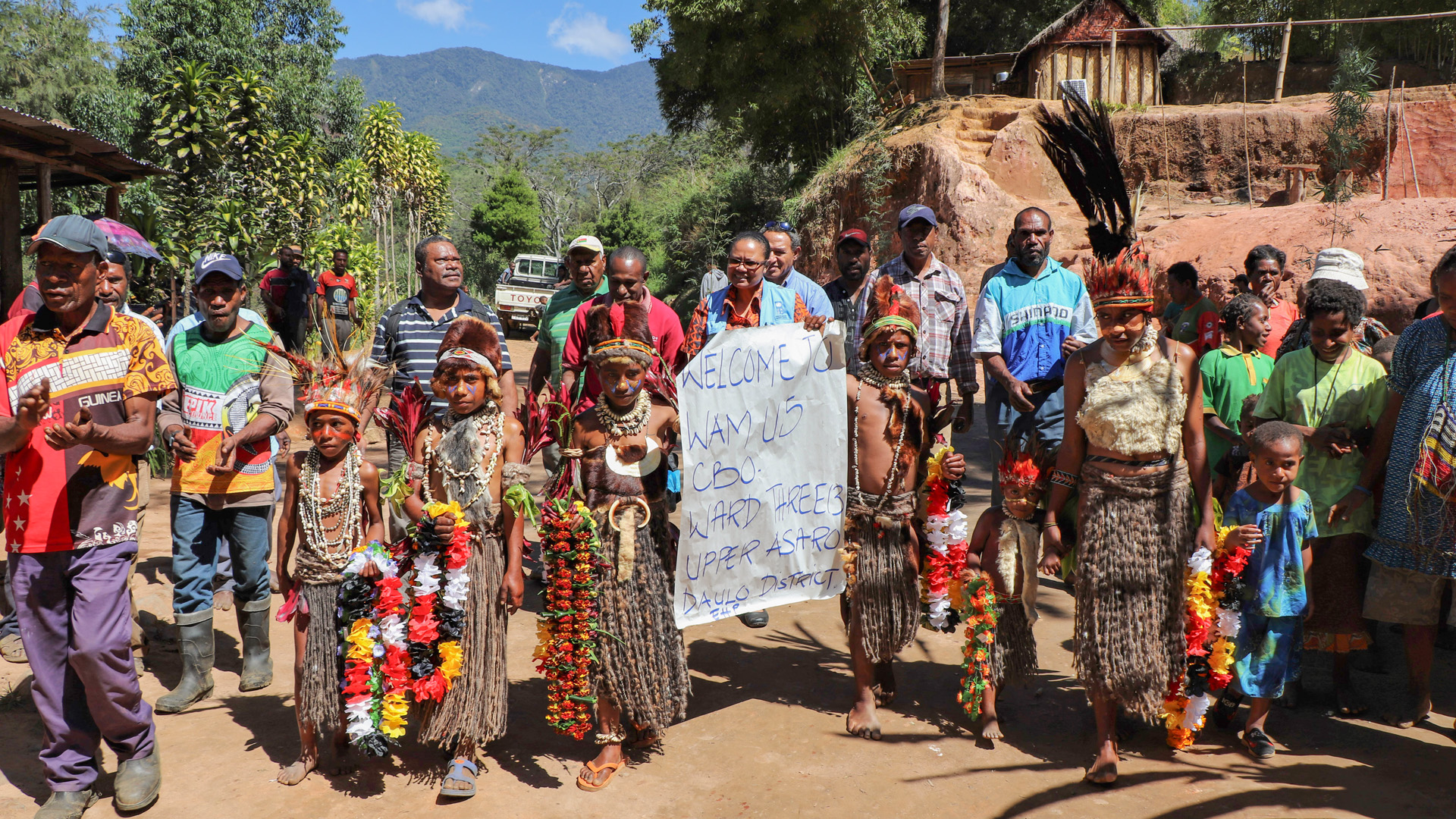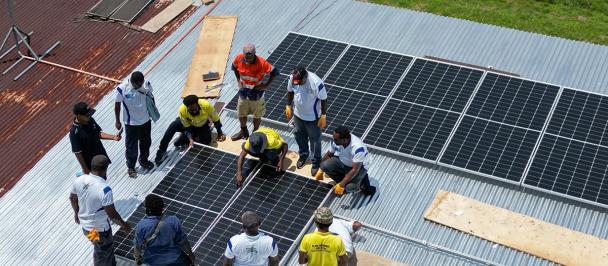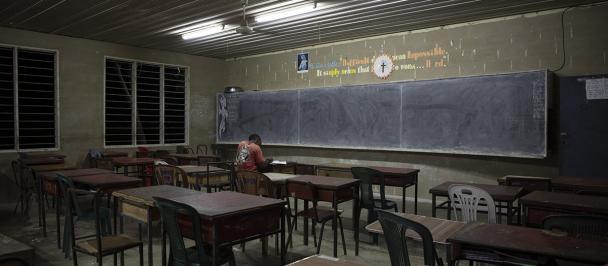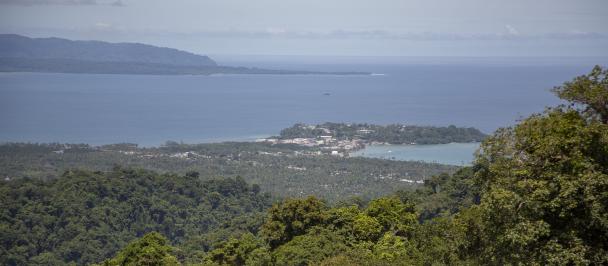Renewable energy journey begins for remote regions
May 31, 2022

Ms Gretel Orake, Project Manager of FREAGER - in Upper Asaro Daulo District, Eastern Highlands.
Welcome to Episode 5 of “Climate Islands” – a podcast by UNDP in Papua New Guinea: We meet Ms Gretel Orake, Project Manager of the FREAGER Project - supporting investment in renewable energy, to pave the way for energy services to reach more than 80% of PNGs remote communities. We also learn how communities can invest and benefit from their own clean energy journey.
The FREAGER Project for sustainable energy in Papua New Guinea aims to remove barriers in energy policy and regulations, demonstrate the benefits of renewables, develop models to better finance renewable energy, and energy efficiency solutions, toward more sustainable communities.
The project also aims to increase normative change on the use of renewable energy and energy efficiency among decision makers.
Funded by the Global Environment Facility, the FREAGER (Facilitating Renewable Energy and Energy Efficiency Applications for Greenhouse Gas Emission Reduction) project is implemented by the United Nations Development Programme in collaboration with the Climate Change Development Authority in Papua New Guinea.
The project has engaged with key government stakeholders - chiefly the National Energy Authority - to review policies and regulations in relation to renewable energy.
UNDP recently handed over the PNG Regulations for Small Power Systems to the National Energy Authority. When approved by government, the PNG Regulations for Small Power Systems will become a legal instrument to facilitate the licensing of small commercial power systems and energy service companies.
As a result, more Papua New Guineans will have access to clean, reliable electricity – generated from solar or hydro power.
Phase 1 of the project involved the creation of an Off-Grid Code Guideline or set of principles. This was done with intensive stakeholder consultations and the support of experts in Spain, USA and Africa. Phase 1 was critical to ensure that assumptions were documented, and the development climate was correctly described - setting the scene for the introduction of a regulatory framework.
The National Energy Authority (NEA) was formed, with roles and responsibilities for regulation of the electricity industry in Papua New Guinea shifted from the Independent Consumer and Competition Commission.
The PNG Regulations for Small Power Systems will become a legal instrument to facilitate the licensing of small commercial power systems and energy service companies.
It outlines the requirements for a license application, the requirement for gaining community agreement as a prerequisite for licensing and provides guidance to the regulator, the communities that will be beneficiaries of the energy service and any private company applying for a license.
UNDP proudly supported the creation of this ‘first-of-its-kind’ legal framework - that will not only support investment in renewable energy, but also pave the way for energy services to be brought to more than 80% of PNG’s remote communities. It has provided a catalyst for the growth of the renewable energy industry and for improving local economies in Papua New Guinea.
The United Nations Development Programme will continue to work with the National Energy Authority to develop a strategy for the implementation of the regulation - and associated solar and hydro power policies for Papua New Guinea.

 Locations
Locations

